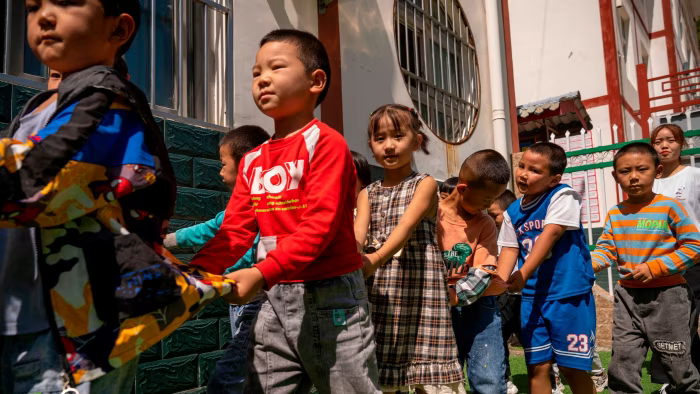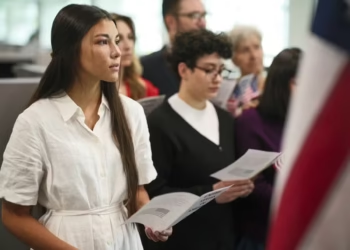BEIJING (Realist English). China has closed more than 40,000 kindergartens over the past four years as a steep drop in births reshapes the country’s education landscape and accelerates a broader demographic shift. According to the Ministry of Education, kindergarten enrolment fell by 12 million between 2020 and 2024 — from a peak of 48 million to 36 million. The number of kindergartens declined from nearly 295,000 in 2021 to about 253,500 today.
“This decline is now baked into the system, and that’s not going to change,” said Stuart Gietel-Basten, director of the Center for Aging Science at the Hong Kong University of Science and Technology. He described the drop in births compared to a decade ago as “huge”.
China has now seen three consecutive years of population decline through 2024, following the end of its decades-long one-child policy in 2016. While the number of births rose modestly to 9.3 million in 2024 — up 520,000 from a record low in 2023 — it remains well below the 2017 high of 17.9 million and still trails the number of deaths.
In the city of Jinhua, Zhejiang province, kindergarten operator Zhuang Yanfang has already converted one of her three facilities into a 42-bed nursing home. “With the birth rate dropping, enrolments had declined,” she said, estimating that “90% of private kindergartens have closed” in the area. Her two remaining schools, which once served over 1,000 children, now host only 150.
Analysts argue that the demographic crisis also presents an opportunity for reform. Gietel-Basten suggested that the government could reinvest resources into enhancing educational quality — from expanding day care for infants to revamping the university entrance system (gaokao). But reallocating infrastructure remains a challenge. “You still have all the buildings, all the properties — and not enough children to fill them,” he noted.
Zhuang is facing similar constraints. Her newly converted eldercare facility houses just 16 residents but serves meals and activities to around 200 retirees. Still, demand remains modest. “Most elderly people want to live with their families. They only come here as a last resort,” she said. “We’re trying to keep going — for old times’ sake.”


















